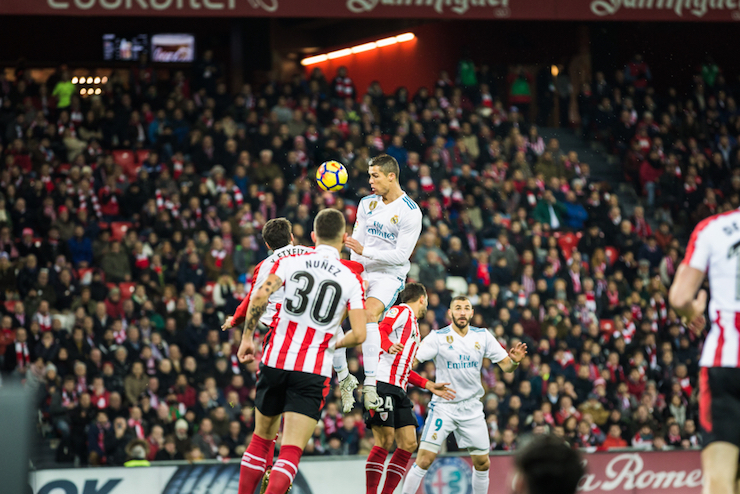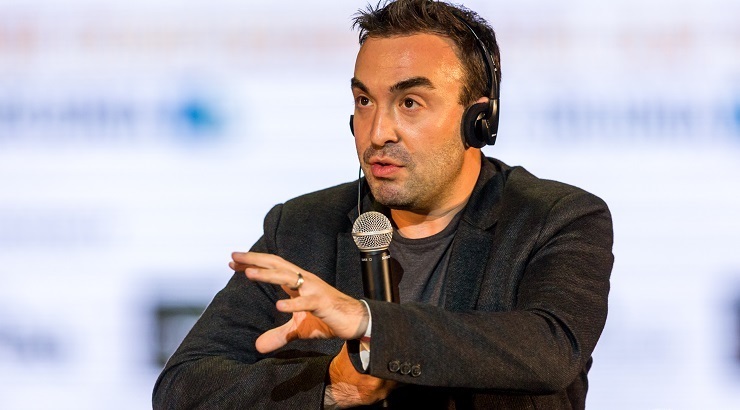Youth and Professional Soccer Players Beware — Faulty Thinking is a Game Killer
A sports psychologist and author of best-selling books on soccer, Dan Abrahams is based in England and works with professional soccer players in the English Premier League(EPL). Abrahams has helped hundreds of soccer players – many of them who play in the English Premier League (EPL) and others who play across Europe.
The Simple Truth — Youth and Professional Soccer Players Need To Avoid Being A Perfectionist
Whenever I give a presentation or talk to coaches one of the main messages I deliver to them is an encouragement to watch soccer in a different manner from time to time. Rather than being overly worried about what the ball is doing, focus on the players.
And specifically, don’t focus on the external…the runs, the movement, the physicality of the player.
Cast your attention on the player’s mindset – the internal. The internal drives the external.
A player’s thoughts influences how they feel, which subsequently drives how they perform.
I’m a sport psychologist. I’m fascinated by the internal – a player’s thoughts and feelings. My job is to help players — and often coaches — manage the internal … those pesky thoughts and feelings that can so often get in the way of improving your soccer and high performing consistently.
In the next few articles I’m going to cover some of the faulty thinking I come across as I work with some of the very best soccer players in the game.
Soccer Players’ Advice: The Perfectionist
This is such a common problem in soccer that I wrote a whole chapter on it in my first book Soccer Tough.

You know, we all want to play the perfect game. Whether on the court, the course or the pitch we want our game to look great, to show off in front of our friends, peers, and coaches. I reckon I’ve worked with hundreds of players who work their backsides to the bone to play the perfect game.
I’m sure that whenever you run onto a soccer pitch you want to make all your passes, you want to own and dominate the opposition, you want to nail every tackle and you want to win every match six nil.
Now this kind of attitude feels admirable.
It sounds like the mindset of a winner – a player with great soccer psychology. And indeed perfectionism in soccer can often be your best friend. It can help drive you to train harder, in all weathers and on all pitch conditions. It can help motivate your mind and can develop a game guided by passion and desire. Someone regarded as a perfectionist may set high standards tough to attain goals and may dream big.
Perfectionists may push themselves further. It’s fair to say that many of the world’s great players have a hint of perfectionism about their attitude and character.
But an attitude of perfectionism can be destructive.
It can cause players to get overly angry and frustrated. It can lead to arguments with team mates. It can inject fear into a mindset.
And, it can cause players to simply give up. Perfectionists rarely perform to their abilities because they’re afraid of failing or making the mistakes that will prevent them from winning. These are often the soccer players who want to win the most and players who train the hardest, but rarely meet their potential on game day.
Those perfectionists who tend to get angry at themselves on the pitch are often ones who go into a game with expectations that are too high. They say to themselves “I’m going to score a hat-trick today” and when, at half time, they haven’t scored they start to get angry, stop focusing correctly and start losing confidence. Alternatively, perfectionists may say to themselves “I’m going to keep a clean sheet today” and when they go a goal down they lose their focus and their confidence starts to disappear.
A real hallmark of the perfectionist is underperformance in matches.
If you train really well but tend to play in matches with inconsistency then you may have a perfectionist mindset.

One of the many ways I like to help players overcome the destructive yet silent killer that is perfectionism is to encourage players to play with fun, freedom and focus.
I’d like you to picture your game now.
Envision playing with fun and freedom. Loose and confident, carefree and creative.
This is how I like players to compete on the soccer pitch. It doesn’t mean you’re sloppy, it doesn’t mean you don’t care about doing well. But it does mean you put performance in perspective. It does mean that you put outcome, winning or losing, to the back of your mind as you play. It means you’re happy to take risks, you’re excited about being daring, you’re buzzing as a result of enjoying the game you have loved to play since you were very young.
Play with fun and freedom. Be light on your feet…alert, alive and lively. Be energetic – enjoy the feeling of moving, running, and doing your job on the pitch with belief.
Add to this a slice of focus. Add to this a mind attending to the things you can control – the responsibsilities within your role on the pitch; your body language, your self-talk, your reaction and responses.
Champion soccer players focus on the things they can control.

And they’re relentless with this focus. They refuse to take their focus, their mind away from what they can control. They refuse to be shifted.
And this is what players engulfed in perfectionism need to do. They need to ensure they compete with fun, freedom and focus. They need to warm up with these F’s in mind. They need to start the match this way. And, they need to play the whole game in this state of mind.
Please visit DanAbrahams for more information on his books.







